What the heck is going on out there?
On my latest canoe trip to Ontario’s Algonquin Park, my group spotted bags of garbage left at several backcountry campsites, lined up by the shore like you’d put garbage by the curb for early morning pickup. On our campsite, the forest floor behind our tent pads was decorated with white toilet paper mounds and human poop. Countless living trees had been hacked down by Daniel Boone wannabes. And while on day trips on big Lake Opeongo, we went to shore—twice—to put out campfires left burning after the occupants had cleared off their sites.
We finished our trip feeling distraught and majorly concerned for the future of our beloved backcountry.
Is mandatory backcountry education coming to a park near you?
There have always been ignorant, unethical and apathetic campers wandering the woods. But if you’re feeling, like my group did, as though there are a lot more of them lately, you’re right.
The latest stats from public and private parks and campgrounds in Canada and the United States show, on average, a 30 percent increase in campground and backcountry use since 2019 and almost double the usage compared to a decade ago. For example: Camping reservations in Alberta provincial parks skyrocketed 5,000 percent during the pandemic, going from 5,209 to 286,657 reservations in one season, and have remained high. Ontario Parks recorded growth from 4.3 million camper nights to 6.6 million per year. And reservations for fall season camping in the United States are up by 192 percent compared to five years ago. The list goes on.
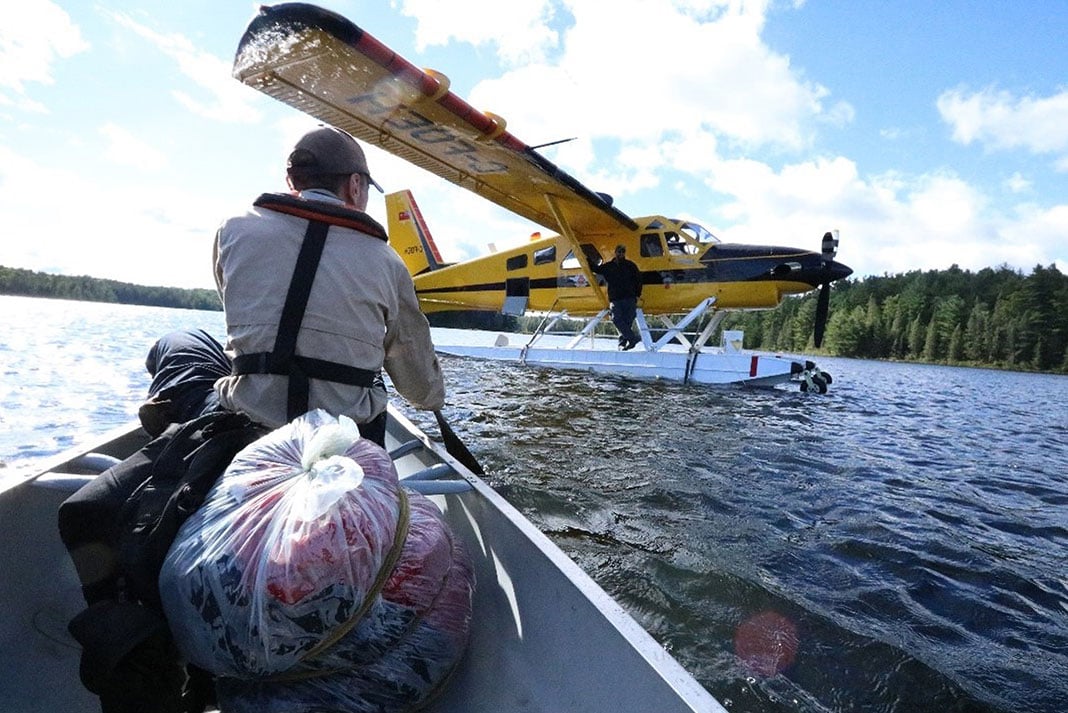
It’s no surprise that with more people comes more litter, toilet paper and abandoned campfires.
To be clear, these stats aren’t a result of existing campers simply deciding to camp more. More than half a million Canadians and 15 million Americans took to the outdoors and camped for the first time in 2023. The average age of campers also shifted. The younger Gen Z went from eight percent of campers to 18 percent, and Millennials from 32 percent to 46 percent. It stands to reason more newbies in the bush equals more folks who are likely to be unfamiliar with the rules.
Now I’m hearing some paddlers talk about the need for a mandatory backcountry etiquette course taken before anyone heads out to sleep in the woods. This isn’t a new idea. Many national parks, including Canada’s Pacific Rim and Gros Morne National Parks and the United States’ Yosemite, Denali and Glacier National Parks, require users to attend orientation sessions before issuing permits on some backcountry routes. Why not do the same for all protected spaces?
I disturbed a wasp nest when I proposed this question on social media. Some paddlers were in favor of the idea—after all, education never hurts. Others cried freedom louder than Mel Gibson while his intestines were being yanked out in Braveheart. The naysayers claimed being forced to watch a film or take a course would be insufferable—whether once per trip, once per year or once in a lifetime.
Some detractors argued education wouldn’t make a difference because those responsible for the kind of abuse I witnessed already knew what they were doing was wrong. That kind of behavior has much more to do with laziness than ignorance, they argued. And you can’t educate that out of people.
Despite the differing opinions, the one thing everyone agreed on was that something should be done. There’s not much we can do to make a difference in camper behavior on public lands—other than ruthlessly shame those unmanaged enough to post about it on social media. But we can take action to protect our parks.
That could mean a mandatory course or video. Or, as some social media commenters suggested, parks could offer a backcountry learn-to-camp program, which teaches participants the basics. How about a skill testing questionnaire taken at checkout for online reservations? True or false: It’s okay to leave unburied poop on a campsite, as long as it’s directly behind the tent pads.
We could create TikTok videos and Instagram Reels on backcountry etiquette to catch the attention of Gen Z and Millennial campers. And to deal with those folks who still haven’t learned—a few more park wardens paddling around and handing out hefty fines might make the lessons stick.
Kevin Callan is the author of 19 books about canoeing. His Butt End column appears in every issue of Paddling Magazine.
Park wardens fly out a sleeping bag filled with rotting garbage from Algonquin Park’s backcountry. Rangers encounter garbage and abandoned equipment on almost every maintenance trip. | Feature photo: Ontario Parks


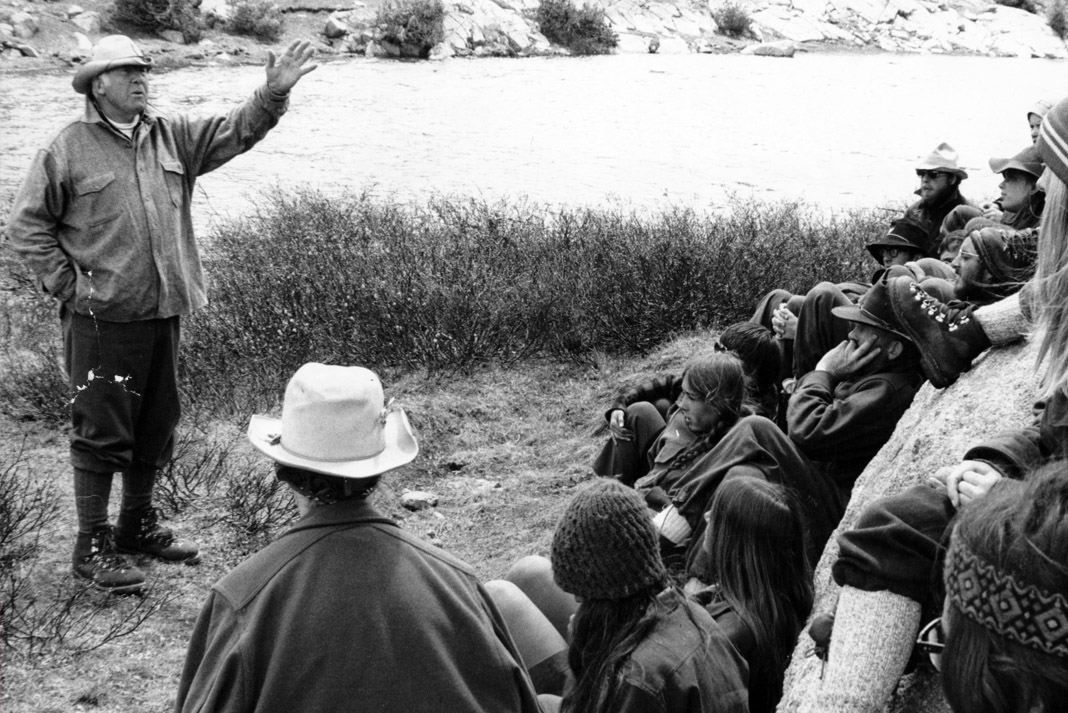
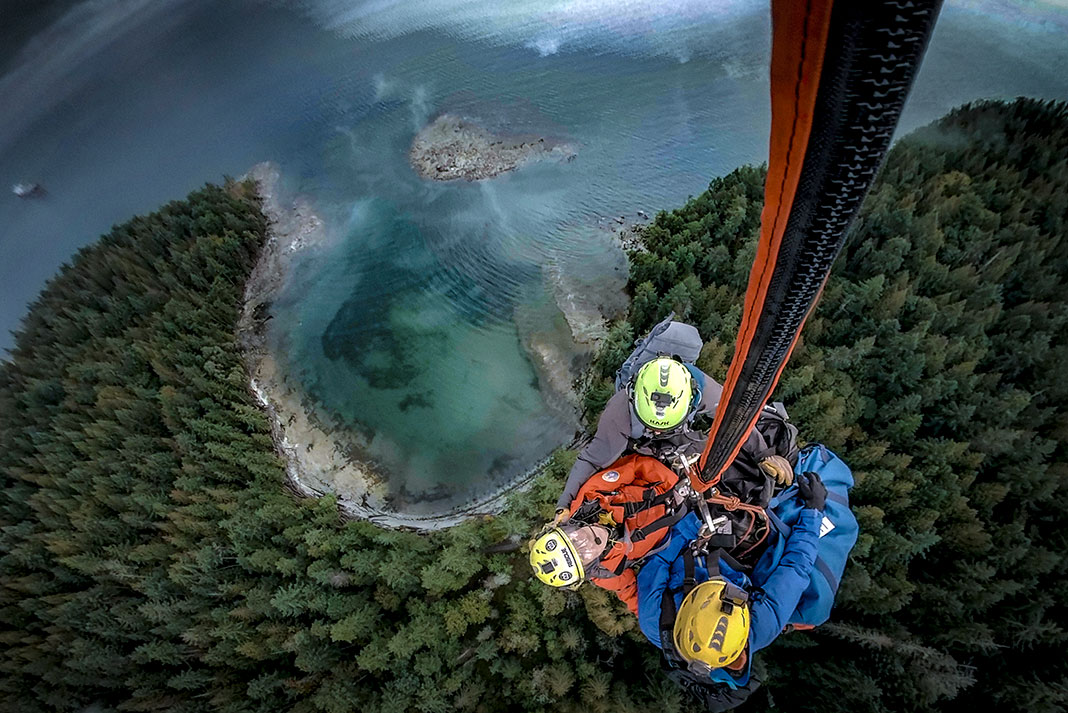
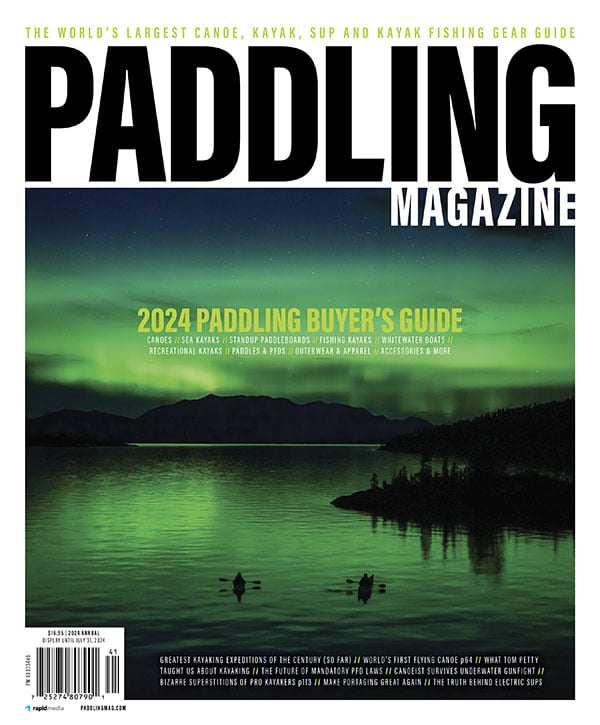 This article was first published in the Spring 2024 issue of Paddling Magazine.
This article was first published in the Spring 2024 issue of Paddling Magazine. 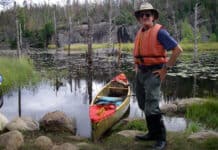
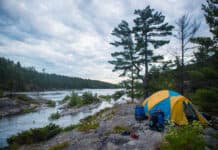
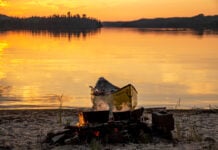
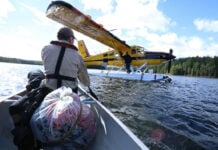



As a long time backcountry camper, I like Alan Cross’ recommendation of Leave No Trace. They are fantastic. I also wouldn’t be adverse to passing a questionnaire at check-out if it helped to curb some of the bizarre, dangerous, and destructive behaviour in the backcountry.
Back and front-country education is simple and easy. Leave No Trace has been doing it for 30 years. It works. Take a workshop, and perhaps show your LNT card.